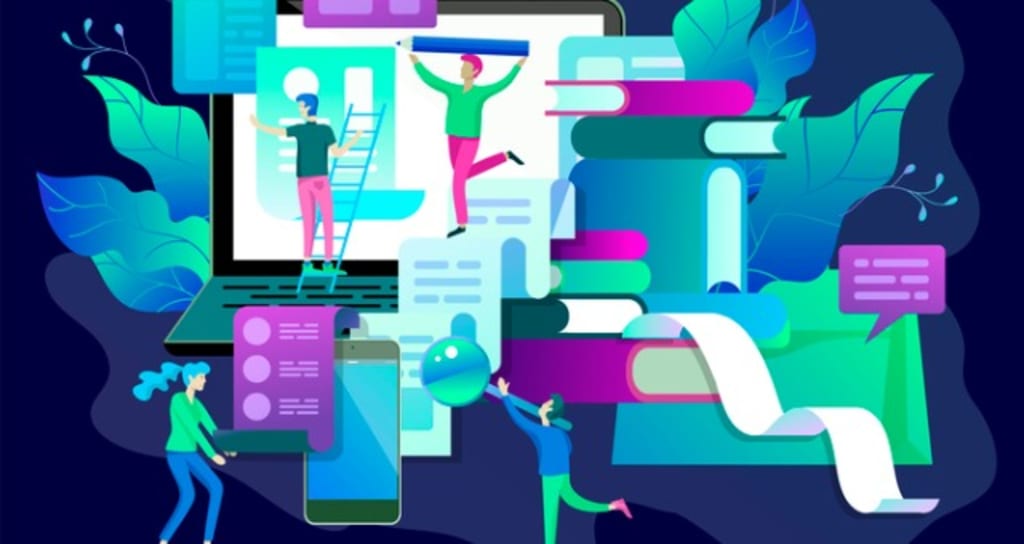What does this mean for the future of learning?
Future of learning

While some believe that the unforeseen and rapid shift to e-learning - without training, with insufficient bandwidth and little preparation - will result in a poor user experience that is not conducive to sustained growth, others believe that a new hybrid model of education will emerge, with significant benefits. "I believe that the integration of information technology in education will be further accelerated and that online education will eventually become an integral part of school education," said Wang Tao, vice president of Tencent Cloud and vice president of Tencent Education.
There have already been successful transitions between many universities. For example, Zhejiang University managed to bring more than 5,000 courses online just two weeks after the transition started using "Ding Talk ZJU". Imperial College London has started offering a Coronavirus Science course, which is now the most enrolled class launched in 2020 on Coursera.
Many are already touting the benefits: Dr Amjad, a professor at the University of Jordan who uses Lark to teach his students, says: “It has changed the way of teaching. This allows me to reach my students more effectively and efficiently through discussion groups, video meetings, voting and document sharing, especially during this pandemic. My students also find it easier to communicate on Lark. I'll stick with Lark even after the coronavirus, I think traditional offline learning and online learning can go hand in hand.
The challenges of online learning
However, there are challenges to overcome. Some students without Internet access and / or reliable technology find it difficult to participate in digital learning; this gap is observed between countries and between income brackets within countries. For example, while 95% of students in Switzerland, Norway and Austria have a computer to use for schoolwork, only 34% in Indonesia do, according to OECD data.
In the United States, there is a significant gap between those from privileged and disadvantaged backgrounds: while virtually all 15-year-olds from privileged backgrounds report having a computer to work on, nearly 25% of those from disadvantaged areas do not. While some schools and governments have provided digital materials to students in need, such as in New South Wales, Australia, many still fear the pandemic will cause the digital divide.
Is online learning as effective?
For those who do not have access to the appropriate technology, there is evidence that online learning can be more effective in a number of ways. Some research shows that, on average, students retain 25-60% more material when learning online, compared to only 8-10% in a classroom. This is mainly because students can learn faster online; Online learning takes 40-60% less time to learn than in a traditional classroom, as students can learn at their own pace, go back and re-read, skip, or speed up concepts at their leisure.
However, the effectiveness of online learning varies across age groups. The general consensus on children, especially younger ones, is that a structured environment is necessary, as children are more easily distracted. To take full advantage of e-learning, a concerted effort must be made to provide this structure and go beyond replicating a physical classroom / conference through video capabilities, instead using a range of tools. Collaboration and engagement methods that foster "inclusion, personalization and intelligence," according to Dowson Tong, senior executive vice president of Tencent and chairman of its Cloud and Smart Industries group.
Since studies have shown that children use their senses extensively to learn, making learning fun and effective through the use of technology is essential, according to BYJU's Mrinal Mohit. “Over a period of time, we observed that smart game integration demonstrated higher engagement and increased motivation for learning, especially among younger students, which really made them fall in love with learning.
It is clear that this pandemic has completely disrupted an education system that many say was already losing its relevance. In his book, 21 Lessons for the 21st Century, researcher Yuval Noah Harari explains how schools continue to focus on traditional academic skills and rote learning, rather than skills such as critical thinking and adaptability. , which will be more important for success in the future. . Could the shift to online learning be the catalyst to create a new, more effective method of educating students? While some fear that the hasty nature of the online transition has hampered this goal, others plan to make online learning part of their "new normal" after experiencing the benefits firsthand.
Importance of knowledge dissemination underscored by COVID-19
Major global events are often an inflection point for rapid innovation - a clear example is the rise of e-commerce after SARS. While we have yet to see if this will apply to online learning after COVID-19, this is one of the few areas where investment has not dried up. What has been clearly shown through this pandemic is the importance of spreading knowledge across borders, across businesses and all parts of society. If e-learning technology can play a role here, it is incumbent upon all of us to explore its full potential.
Learn online courses and build creative, and business skills to achieve your personal and professional goals. Join today to get access to thousands of courses.





Comments
There are no comments for this story
Be the first to respond and start the conversation.